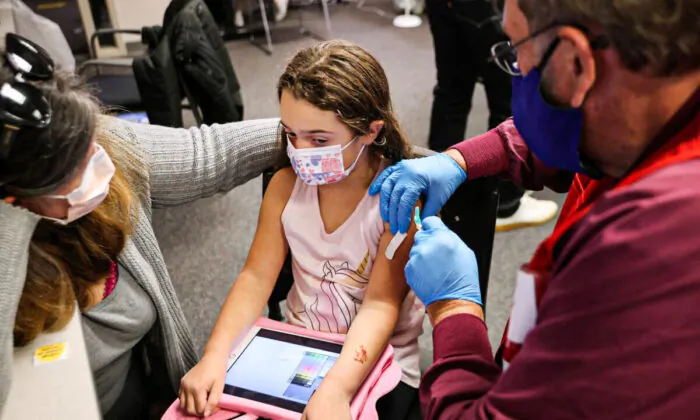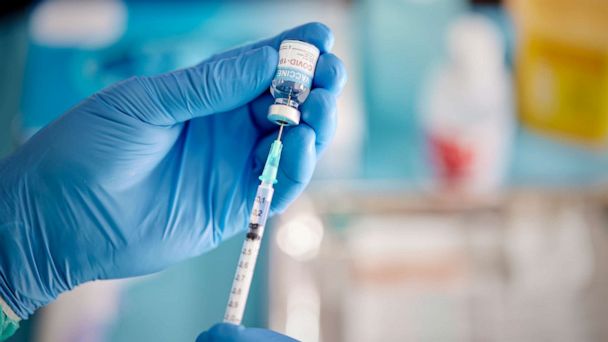 |
| Chip Somodevilla/Getty Images |
Canadian parents have become more likely to question routine childhood vaccinations since the pandemic, according to research.
Immunization rates “have declined since COVID-19” according to research commissioned by the federal government and conducted by Ekos Research Associates. The resulting report, “Childhood Vaccination Marketing Campaign Survey 2022,” was delivered to Health Canada on Feb. 15, 2023, and was first obtained by Blacklock’s Reporter.
“This public opinion research will inform the development of the new multi-year Childhood Vaccination marketing strategy to promote the safety, effectiveness, and importance of vaccines,” the report said.
Only 39 percent of respondents said they accept all recommended childhood vaccines and have no doubts or concerns about vaccinating their child—a drop from 48 percent in 2017.
One in three parents (33 percent) indicated they accept government-recommended vaccines, but have “minor doubts and concerns.”
Another five percent of parents said they are going along with childhood vaccines but “have many doubts and concerns.”
Nearly 20 percent of parents said they have refused or delayed getting vaccines for their children, and another 3 percent have refused all vaccines. These two numbers combined have doubled from 12 percent in 2017 to 22 percent in 2022, said the research. --->READ MORE HERECOVID vaccine protection against infection drops after 6 months, protection against severe disease strong: Study:
The study didn't examine the updated bivalent boosters.
COVID-19 vaccine effectiveness against omicron infection fell dramatically after six months for people who only got their primary series, according to a new analysis published Wednesday.
The study may not accurately reflect vaccine effectiveness in the United States because researchers included many of the most common vaccines used around the world, including Pfizer-BioNTech, Moderna, AstraZeneca and Sinovac.
The researchers, however, did not look at the updated bivalent vaccines that target the original strain of the virus as well as BA.4 and BA.5, which are subvariants of omicron.
Meanwhile, scientists emphasize that vaccines are still working to significantly reduce the risk of hospitalization and death. Scientists no longer expect vaccines to offer good protection against mild infection since the evolution of new variants, nor is this as important due to the fact that most Americans have some level of underlying immunity.
For the analysis, published in JAMA Network Open, the team examined 40 studies -- a combination of articles and reviews published in peer-reviewed journals and preprints.
After receiving a primary series, protection against symptomatic disease decreased from 52.8% at one month after the last dose to 14.3% at six months to 8.9% at nine months.
When it came to vaccine effectiveness against overall infection, protection fell from 44.4% at one month to 20.7% at six months to 13.4% at nine months.
There were some differences in vaccine products from Pfizer and Moderna; they had higher effectiveness than the AstraZeneca and Sinovac vaccines. --->READ MORE HEREFollow links below to relevant/related stories and resources:
CDC director Rochelle Walensky resigns, citing end of COVID-19 pandemic
What Happens at the End of the Covid-19 Public-Health Emergency?
USA TODAY: Coronavirus Updates
WSJ: Coronavirus Live Updates
YAHOO NEWS: Coronavirus Live Updates
NEW YORK POST: Coronavirus The Latest
If you like what you see, please "Like" and/or Follow us on FACEBOOK here, GETTR here, and TWITTER here.


No comments:
Post a Comment